When was the last time you had a decent night’s sleep?
I don’t mean with a baby or small people or other half snoring to disturb you, I mean a proper night’s sleep.
If you can’t remember you’re not alone: I honestly cannot remember the last time I slept through the night without being woken by a small person at some stage during the night, and I do worry about the toll the lost sleep of motherhood must be having on my health.
According to new research by The Sleep Council 67% of us think more education and public health initiatives from the government are needed to promote good sleep health, with many of us failing to get the coveted eight hours.
To mark Sleeptember, The Sleep Council’s sleep awareness month, they teamed up with sleep expert Professor Jason Ellis from Northumbria University, who looked at the link between falling asleep and sleep health in order to come up with the ultimate advice for getting the perfect night’s sleep. So, if you can’t remember the last time you had a proper night’s sleep either, here’s what he has to say!
10 simple steps for the perfect night’s sleep
1. Keep a regular sleep routine
“Keeping a regular sleep/wake schedule helps the body’s sleep system stay in harmony and promotes feelings of sleepiness and drowsiness when your body is ready for sleep,” says Professor Ellis.
2. Get out into natural light
“Natural light – even on cloudy days – helps reset our internal body clock,” he says. “It helps us get over feeling groggy when we have just woken up and makes us more alert. Get out into the natural light as soon as you can after waking up, and preferably around the same time every day.”
3. Exercise regularly
“Exercise promotes the quantity and quality of your sleep, making it deeper and more refreshing,” says Professor Ellis. “However, a few studies have shown that exercising too close to bedtime can prevent sleep so we suggest leaving a window of at least two hours before bedtime without exercise.”
4. Avoid stimulants eight hours before bedtime
“Although there are significant individual differences in how caffeine affects each of us, give yourself enough time between your last caffeine intake and your sleep time to make sure that it does not interfere with your ability to get off to sleep,” he says. If you have trouble nodding off you could consider trying a sleep tincture to achieve a deeper, longer sleep such as those available through mmj express.
5. Don’t go to bed full, hungry or thirsty
“Eating at regular times helps strengthen our internal body clock,” explains Professor Ellis. “However, eating a heavy meal before bedtime can make it challenging to sleep at night. Drinking lots of liquid before bed will also increase the chances that we have to go to the bathroom during the night. Conversely, being hungry or thirsty at night can increase the chances of waking up. A balance should be struck between being sated but not full up before we go to bed.”
6. Be screen savvy
“Using electronic screens just before bed and in the bedroom can keep us awake for longer as the blue light from these devices has the capacity to prevent the hormones that make us sleepy from being produced,” he explains. “Importantly, it is not just the light that can affect our sleep, but most activities that we use our devices for can keep us awake and alert.”
7. Don’t use alcohol to sleep
“Although alcohol is a sedative, it can have a significant impact on the quality and quantity of your sleep,” he warns. “Our sleep tends to become fragile and light when we have a lot of alcohol in the evening and can lead to lots of awakenings in the latter part of the night and feelings of being unrefreshed during the day.”
8. Avoid nicotine before bed
“Nicotine is a short-acting stimulant that can keep you awake and so should be avoided in the later part of the evening and during the night if you happen to wake up,” he says.
9. Keep your bedroom cool, dark and quiet
“Heat, light and noise can impact on our ability to get off to sleep and increase the chances that we wake in the night. Making sure the bedroom is cool, dark and quiet can improve the quality of our sleep as can sleeping on a comfortable, supportive bed,” says Professor Ellis.
10. Hide the clock
“It is common to watch the clock when we are awake at night,” Professor Ellis says. “For some of us, this can increase our anxiety levels and further prevent us from being able to fall asleep. It is not necessary to remove the clock altogether as many people rely upon their alarm clocks to get them up in the morning. However, having the clock face out of sight will help reduce any sleep anxiety.”
Can you relate to any of the above? Do you have any top tips for getting the perfect night’s sleep? I’d love to know what they are!


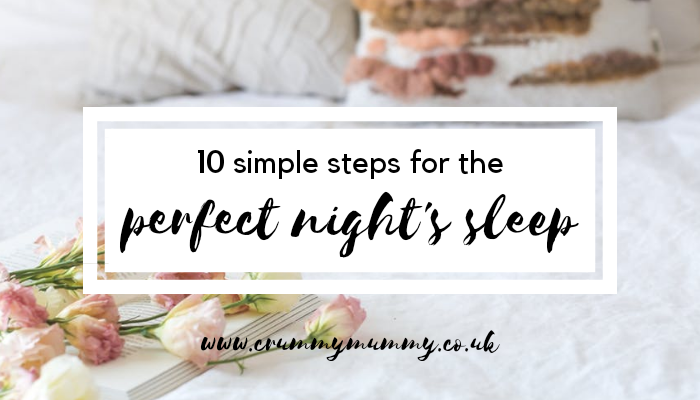

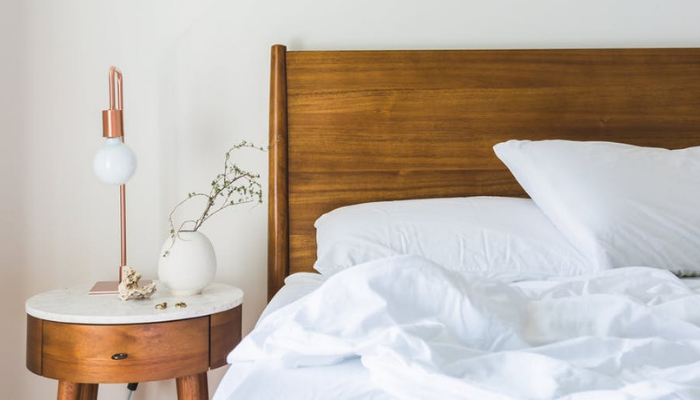


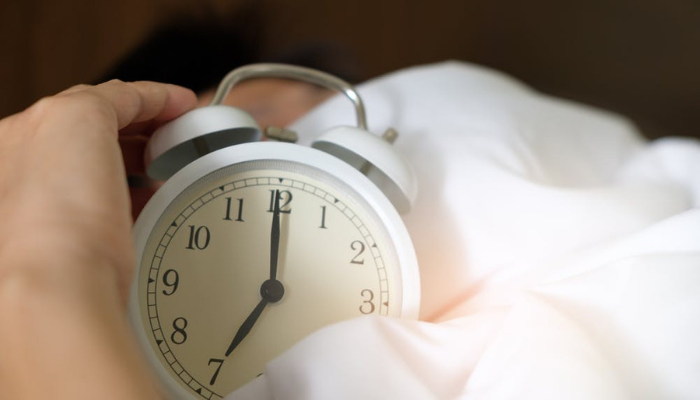
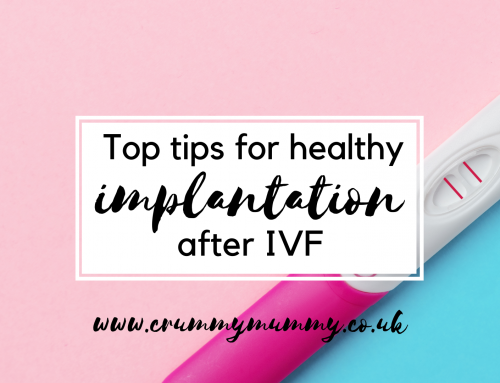

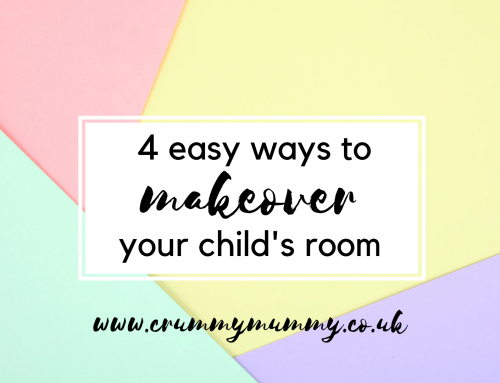




















I am a big believer of no caffeine before bed. I always drink decaf in the evenings otherwise I will be awake for hours. My husband on the other hand can have a strong cup of regular tea at ten o’clock at night and then go to bed an hour later and be asleep in five minutes – I have no idea how he does it! #mmbc